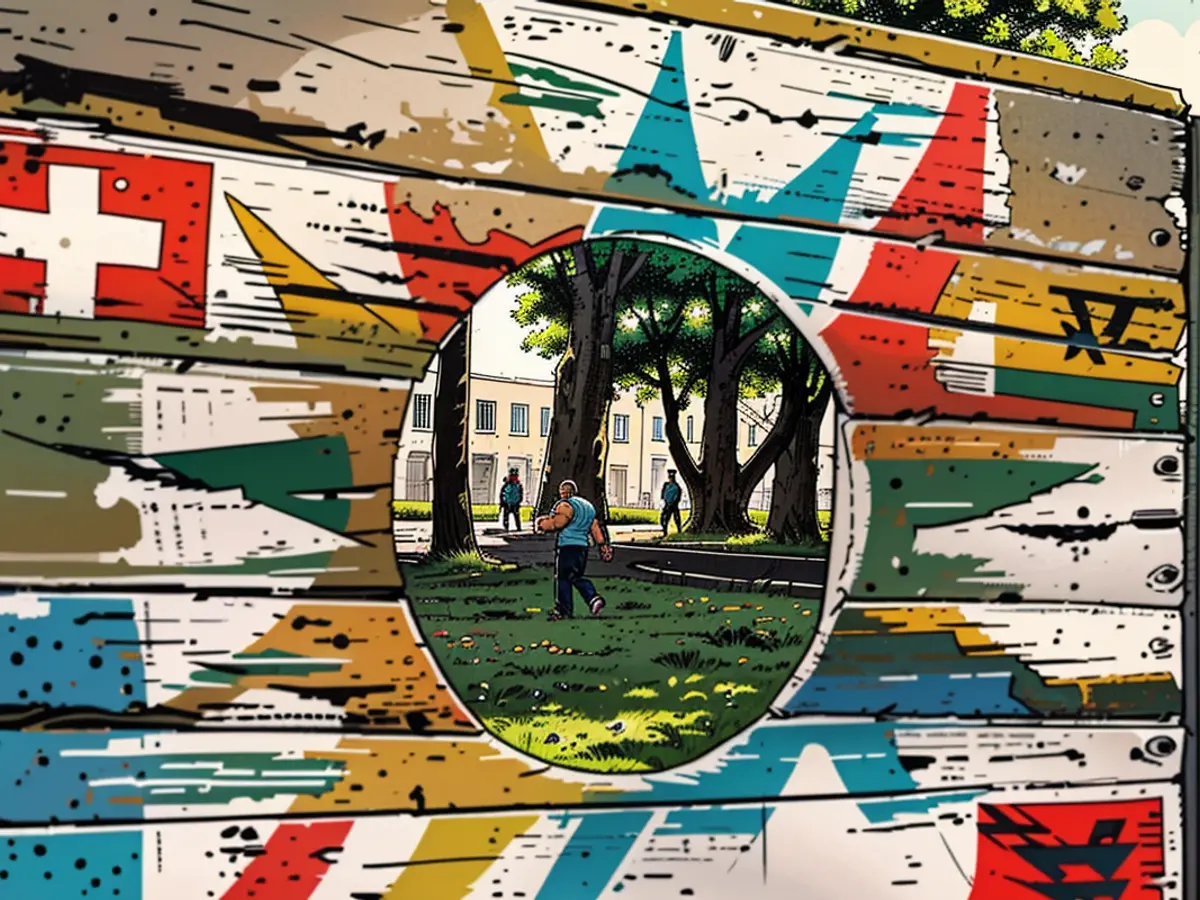SPD and Greens strongly oppose the third country approach.
In the evaluation of the Third Party Model, dissension arises within the traffic light coalition. While the FDP, alongside the Union, advocates for prompt execution post-conference of minister-presidents, the SPD and Greens flatly oppose the plans.
Harsh criticism of the Third Party Model is voiced by the SPD. "The expectation management at the minister-presidents' conference remains inadequate, and the statements regarding asylum procedures in third countries serve as fuel for the far-right," said the chairman of the SPD's migration and diversity working group, Aziz Bozkurt, to the "Tagesspiegel." It has long been evident that third-party models are legally "more than challenging" and "practically close to impossible." Expert scientific opinion is again being overlooked, Bozkurt criticized. "In times of crisis, we demand political leadership that provides guidance, and that's going horribly wrong."
Criticism of the Third Party Model also arises from the SPD party executive. "Third-country regulations like the British 'Rwanda Model' or Italy's plans with Albania do not address the root causes of migration," said Serpil Midyatli, deputy federal chairwoman of the SPD and chairman of the SPD in Schleswig-Holstein. "They create new problems: Asylum centers abroad are costly, inefficient, and complicated to implement." Midyatli's primary criticism, however, is directed towards the Union: "Instead of trying to outdo each other with maximum demands, the Union should engage in practical methods to tackle the root causes of migration."
"Outsourcing a Dead End"
SPD Bundestag member Hakan Demir holds similar reservations. "In particular, the union-led states seem to fall for the illusion that they can shirk their humanitarian responsibility towards asylum seekers," said Demir to the newspaper. The migration expert spoke of "a dangerous signal to the international community." Procedures in third countries are costly and time-consuming and require double legal protection.
"Moreover, it is a dead end to demand challenging procedures and integration efforts from countries that have significantly fewer resources, which are already a challenge for us in Germany," Demir added. The SPD politician thanked the three states that issued critical protocol declarations at the minister-presidents' conference. "I appreciate the state governments in Lower Saxony, Bremen, and Thuringia for rejecting outsourced procedures as a deterrent instrument."
SPD's Youth Also Rejects
On Thursday, Federal Chancellor Olaf Scholz, under pressure from union-led federal states, promised a review of asylum procedures in third countries. Results are expected before the next minister-presidents' conference in December. Scholz also expressed his skepticism at a press conference.
Union and FDP: Fulfilling Citizens' Expectations
Following the meeting between the state leaders with Scholz, the Union and FDP called for additional measures in migration policy. "There is an apparent lack of political determination to correct the migration policy of the SPD and Greens," said Thorsten Frei, parliamentary group leader of the Union in the Bundestag, to the "Tagesspiegel." He criticized that the traffic light coalition resides in a "separate world." "The citizens rightfully expect no further delays in decisions but an immediate course correction," said Frei and demanded, in particular, more steps for the model of secure third countries. "The legal feasibility should be beyond dispute by now. It is therefore more than regrettable that both the Chancellor as well as several SPD state premiers are hesitant," said Frei.
Similarly, Christoph Meyer, deputy chairman of the FDP in the Bundestag, expressed himself to the paper: "The third country regulation and the benefit cap at the cash card may not be played down or fundamentally questioned in the Federal Government, SPD- and Greens-states," he said. "Federal and state governments must deliver and fulfill the expectations of the citizens, and anything else is political campaigning for the AfD," so Meyer.
Green speaker Katharina Stolla rejected all third country plans. "The decisions of the conference of minister-presidents are another step towards a restrictive deportation policy," she told the Redaktionsnetzwerk Deutschland (RND). "Philosophizing about a third country model is simply irresponsible politics and a distraction debate. I consider it highly questionable that such a model can function and withstand judicial scrutiny."
Read also:
- In contrast to the FDP, the SPD and the 'Union parliamentary group' share disputes regarding the prompt execution of third-country asylum procedures post-conference of minister-presidents.
- Olaf Scholz, facing pressure from union-led federal states, has promised a review of asylum procedures in third countries, citing concerns shared by SPD Bundestag member Hakan Demir, who views third-country processes as a "dead end."
- Critics from the SPD, including Solidarity and Diversity Working Group chairman Aziz Bozkurt and SPD deputy federal chairman Serpil Midyatli, argue against third-country models, considering them ineffective and costly, with Midyatli further criticizing the Union for focusing on maximum demands rather than practical methods.
- While SPD Green spokesperson Katharina Stolla rejects all third-country plans, the FDP, led by deputy chairman Christoph Meyer, supports third-country regulations, urging the federal and state governments to deliver on citizens' expectations.








